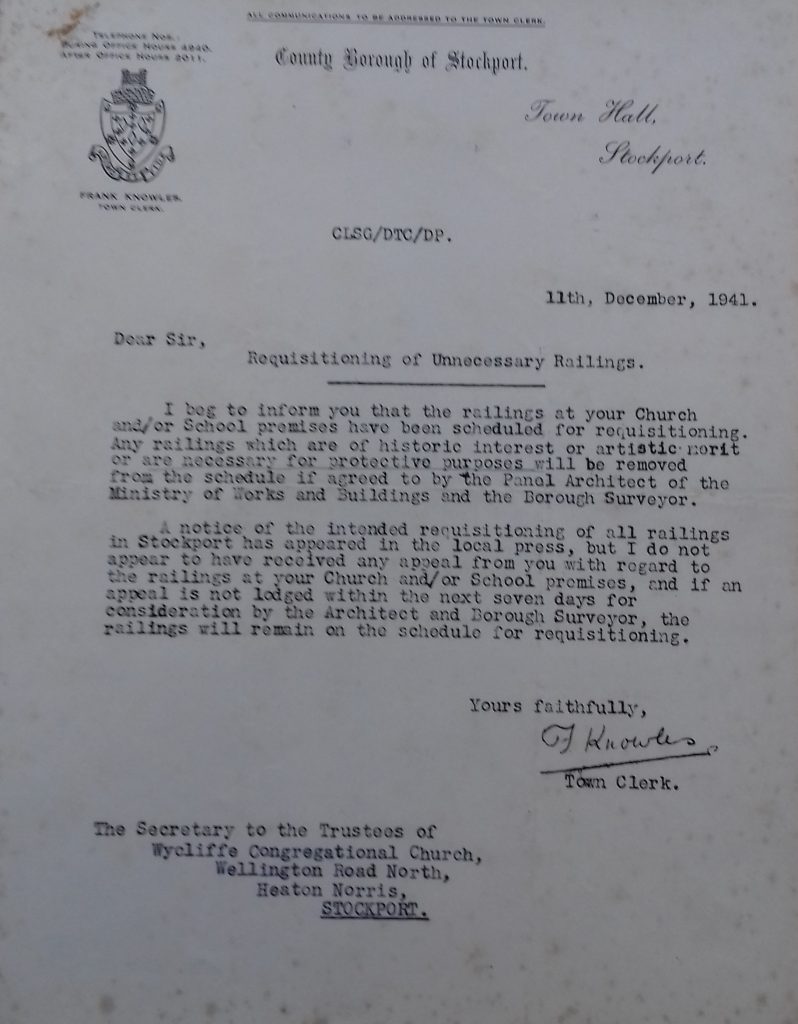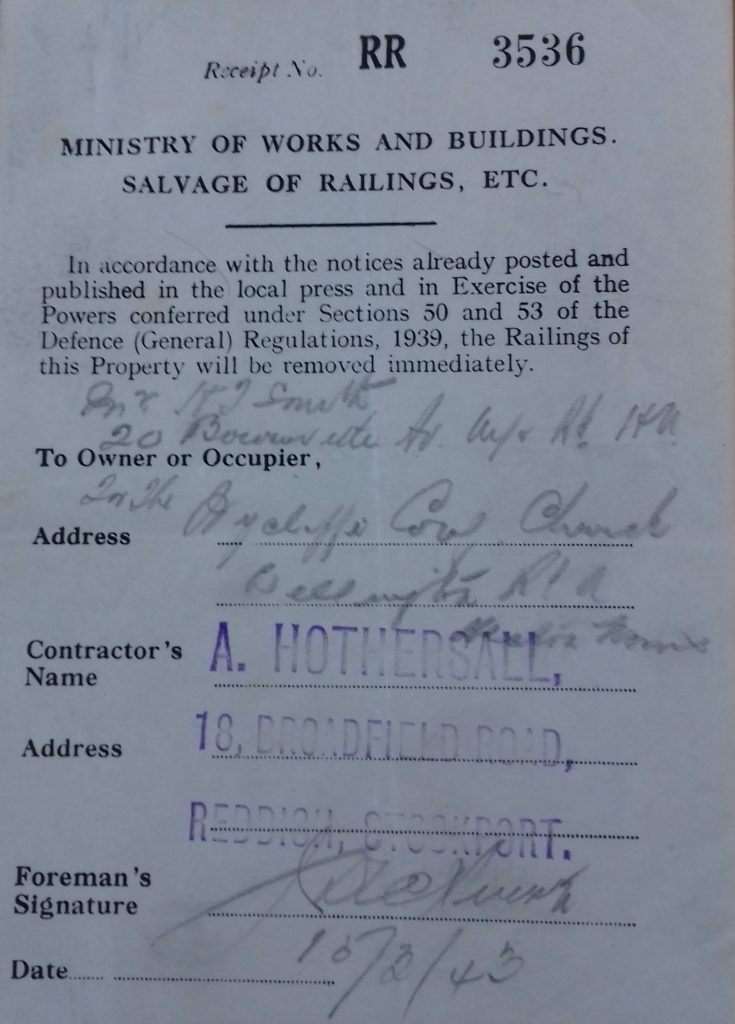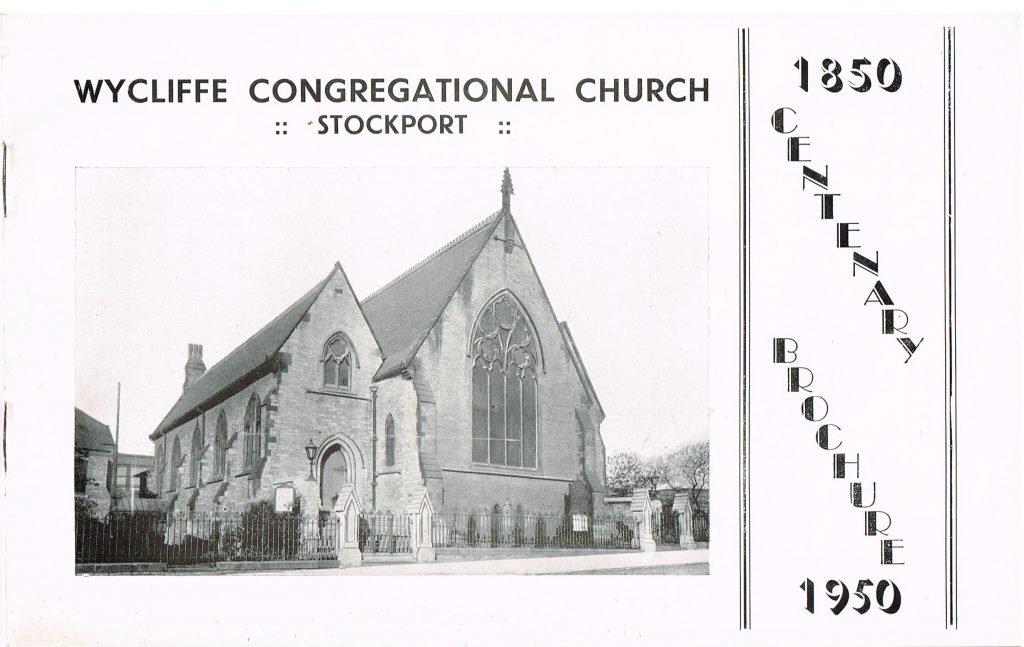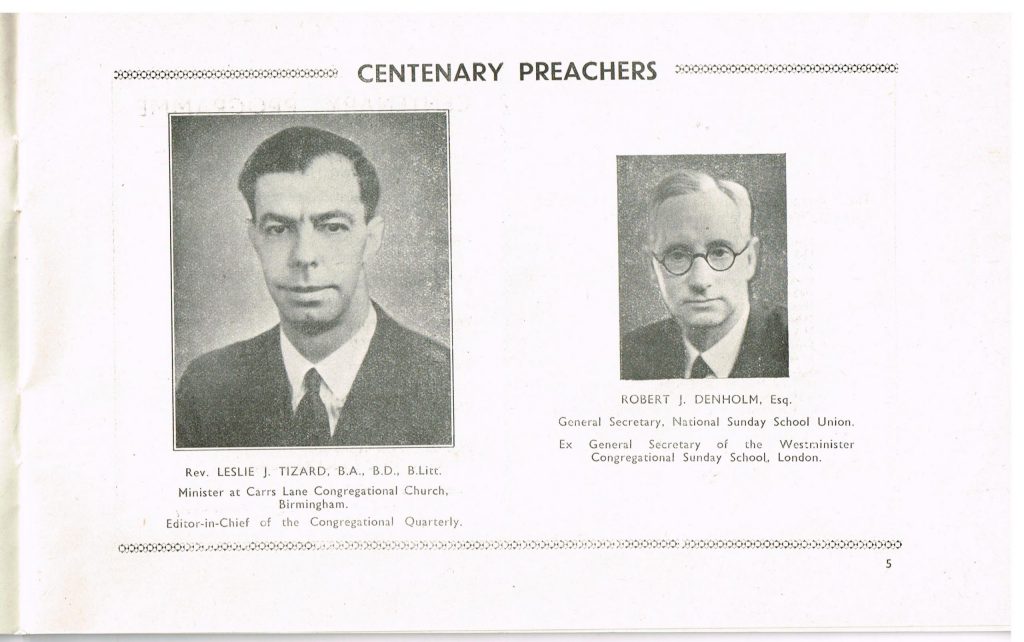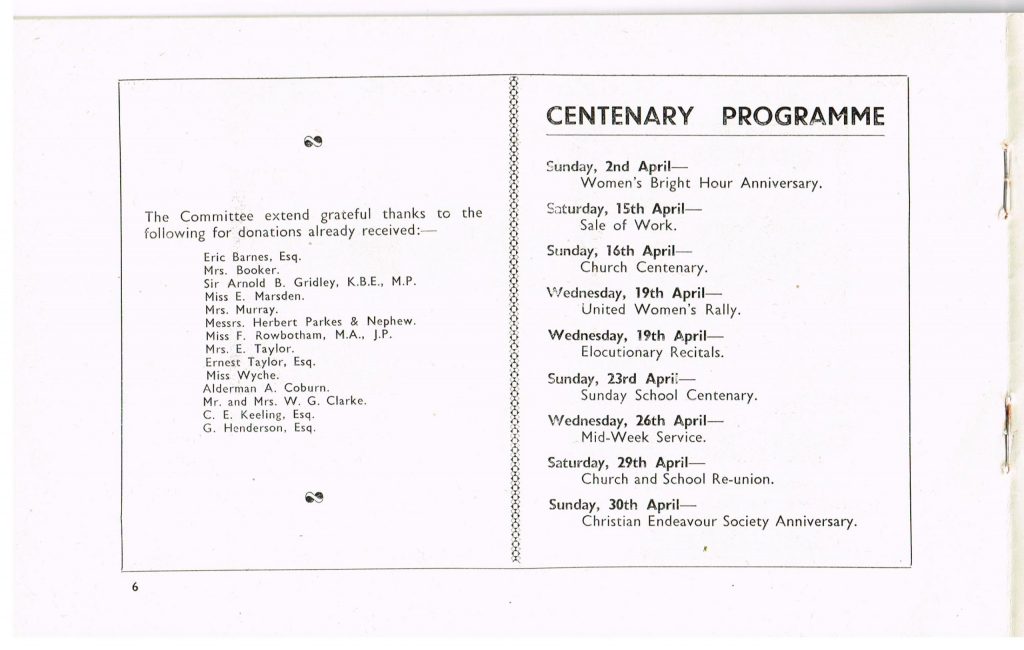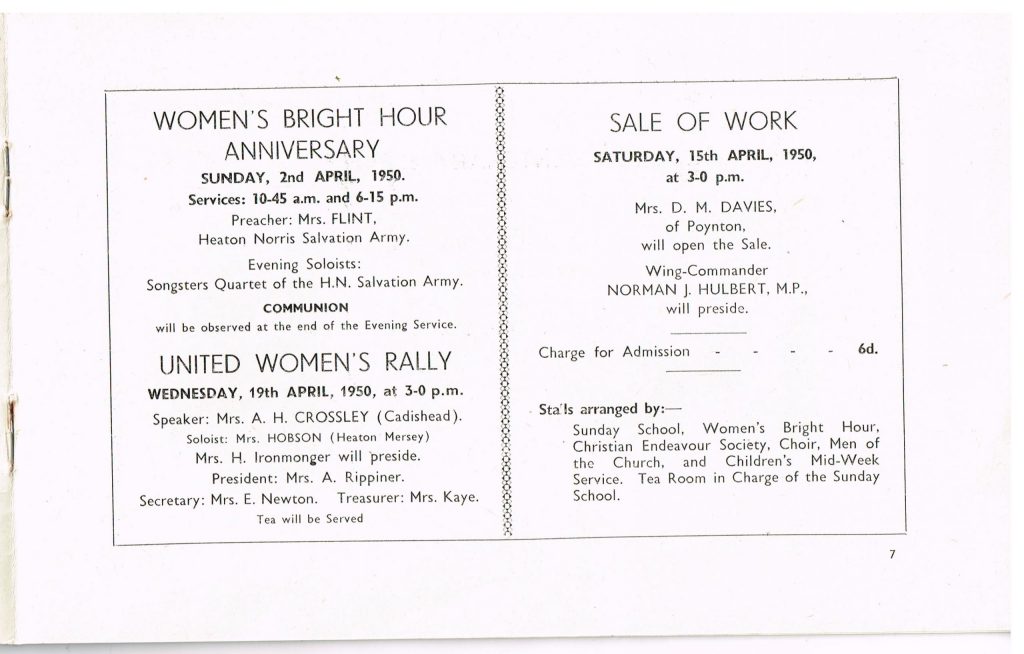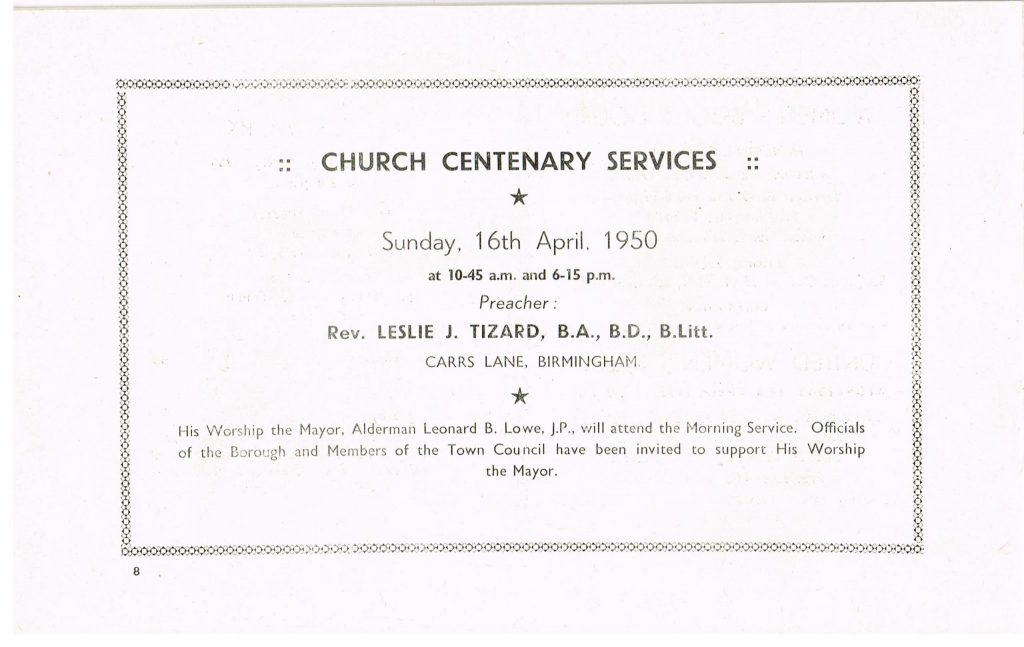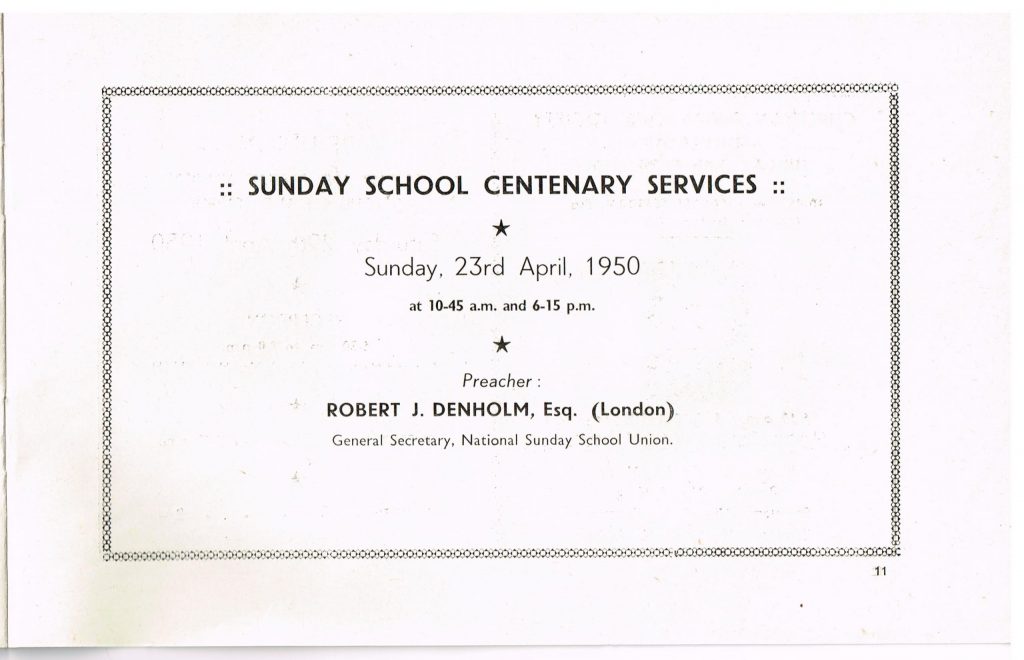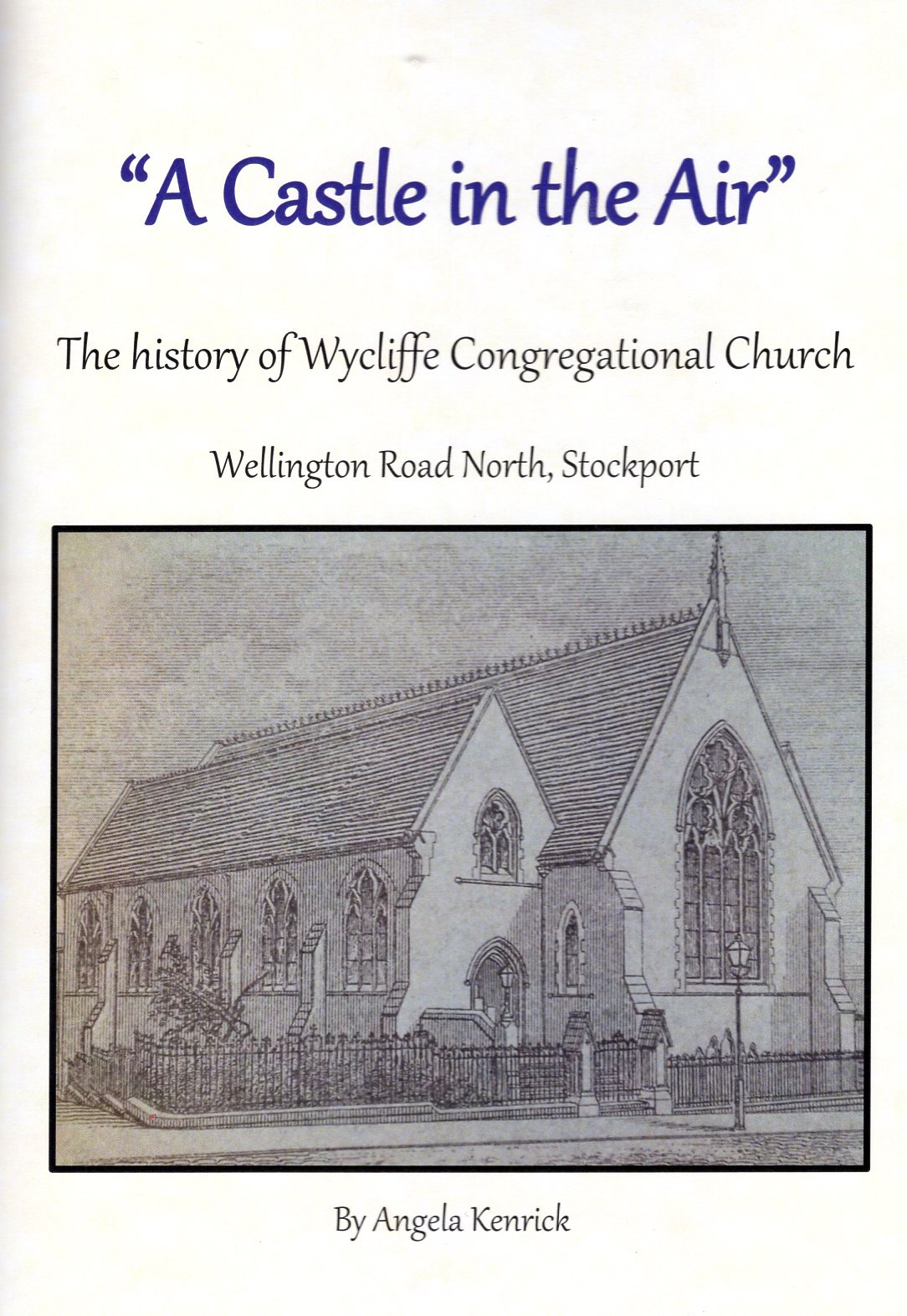The 1940s – War
Blackout preparations were made, although there were at least 4 violations reported to the police in 1942 and ‘44, which resulted in a warning.

Wycliffe was also used as a distribution centre for local ration books.
Bomb damage

On Dec 23rd 1940 during the Manchester Blitz, heavy damage was sustained to the church and school during an air raid. A bomb exploded nearby at the Heaton Norris Goods Yard damaging Wycliffe’s roof, stained glass and glass windows, lamps and the organ. You can just see the church in the top left of the picture.
The organ repairs were covered by insurance, many local churches and people donated to an appeal, and the War Damage Commissioners covered most of the other costs, but not until 1948.
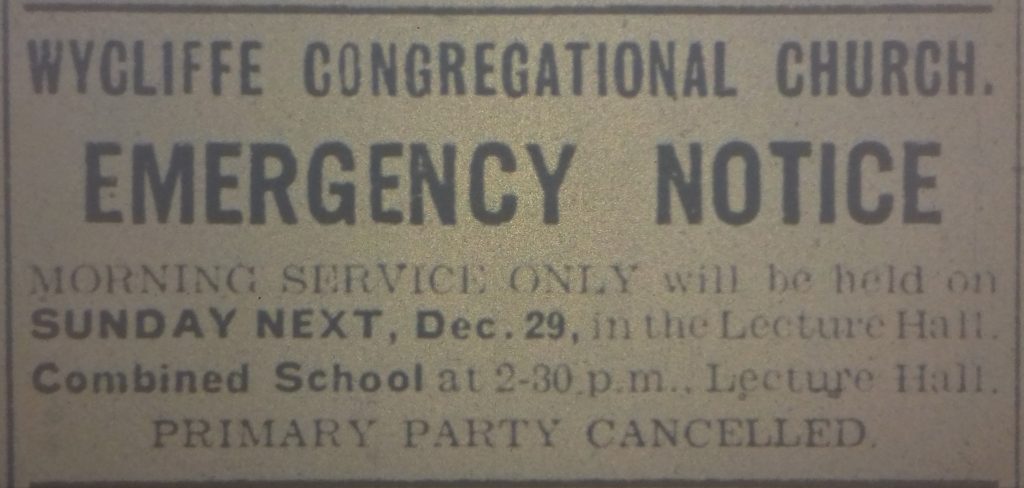
It took seven months to repair with the church reopening in July 1941. One of the larger classrooms in the new building served as a temporary church during this time so the “fellowship did not suffer as a consequence of the “blitz”.”
Removal of Railings
As with many public buildings, Wycliffe received notice of the requisition of railings for the war effort in December 1941. This caused some debate, and exemption rules were investigated as the basement windows to the school could prove a hazard in the blackout with no railings on Wellington Road to prevent people from falling into the gap. This appeal was successful with the “Well Rd Nth frontage and gates to remain, remaining railings to be requisitioned.” You will notice, even now, that the railings on George’s Road are different from those on Wellington Rd – this is why.

Letter from Stockport Council requisitioning the railings for the war effort – 1941 
Receipt from A. Hothersall for removal of railings
Almost immediately, problems started with vandalism on the newly accessible land, with fires set and windows broken. Further damage was caused to the existing railings and stonework by more vehicle impacts but even in 1946, it was still difficult to find anyone to repair it.
The end of the war saw a popular Thanksgiving Service for VE Day, although a letter from the council cast a shadow over events. A new town planning scheme was proposed in which Wycliffe would have to be demolished to make way for a new roundabout or road layout! After a great deal of concern, the plans were finally altered, and Wycliffe saved from destruction once again.
Centenary
1950 saw the centenary of the opening of Wycliffe and was marked with special services and events throughout April.
More historical information is available in our booklet ‘A Castle in the Air’, and on our Minister’s Timeline which has turned into more of a biography section as there are some interesting extra details.

